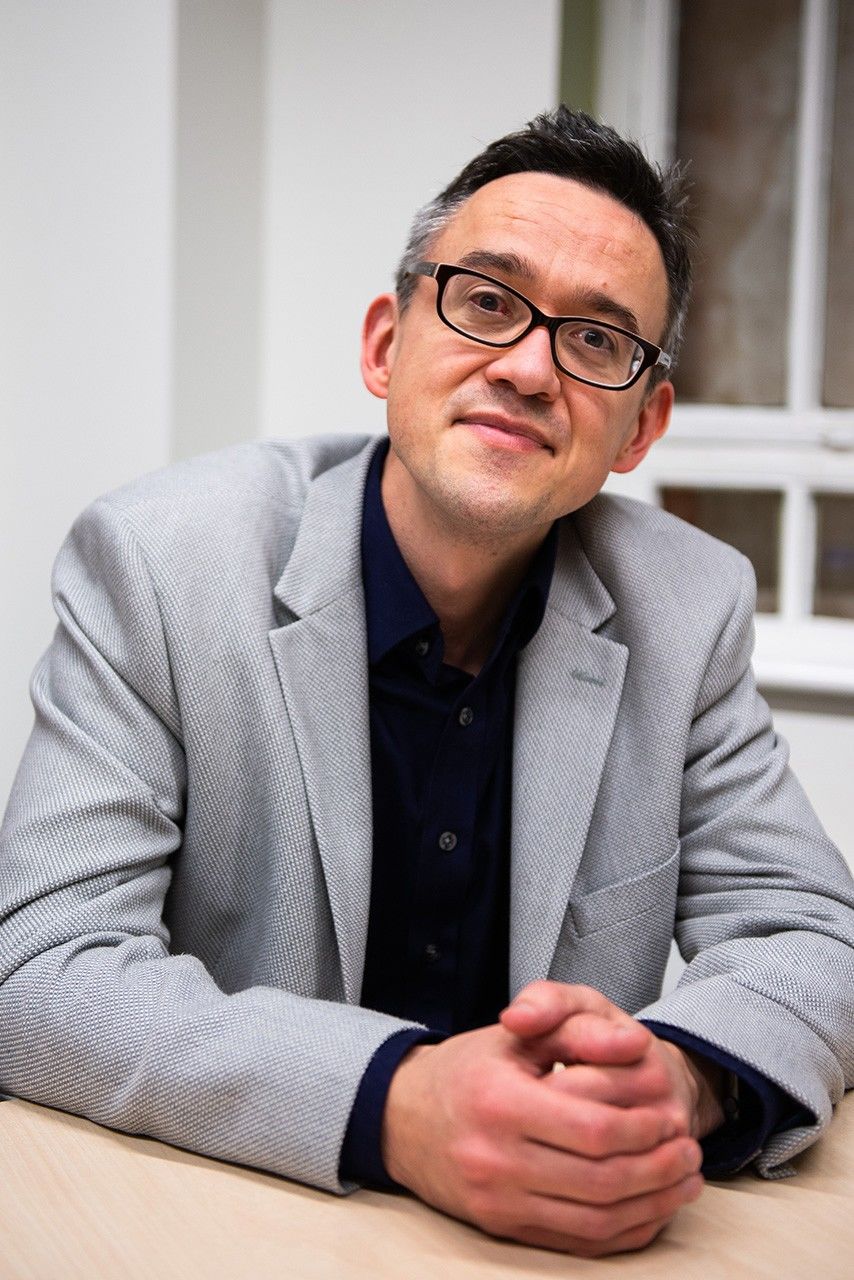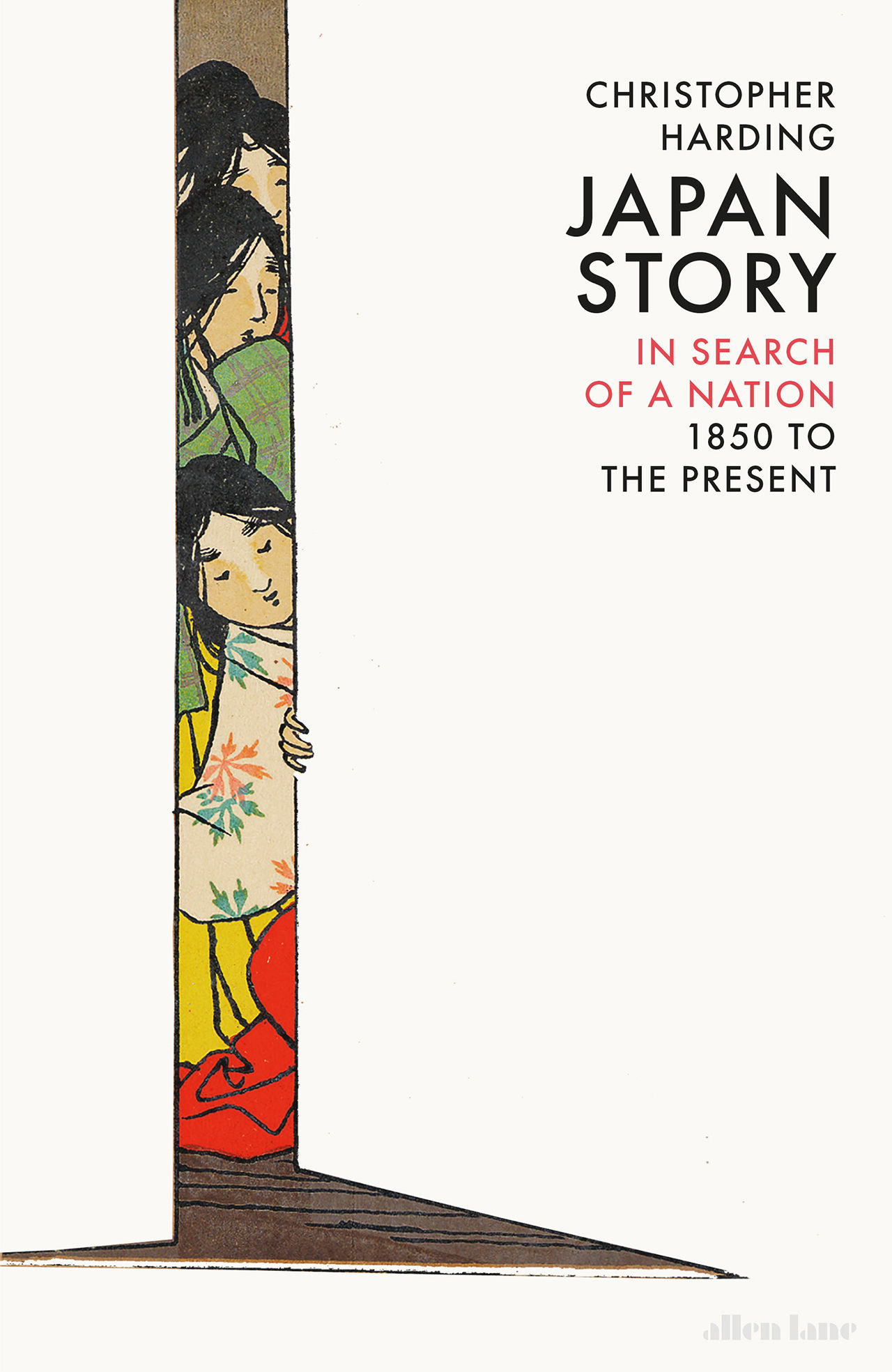
Christopher Harding Tells a “Japan Story” Through the Nation’s Alternative Voices
Culture Books- English
- 日本語
- 简体字
- 繁體字
- Français
- Español
- العربية
- Русский
The title of Christopher Harding’s new history is Japan Story, but in fact the book contains numerous stories—many perhaps unfamiliar even to long-time students of Japan.
Covering the period from 1850 to 2018, the work features a diverse cast of Buddhists and activists, feminists and terrorists, psychotherapists and jazz pianists, and surrealists and avant-garde artists. Initially intended to be about resistance and protest in Japan, Harding says, it ultimately evolved into a modern history.
“These stories are about what Japan has been in the past and what it should be in the future. My sense is that the public thinks that Japanese identity is quite fixed and uniform. But you have all these creative radical visions for what Japan could become that end up getting squeezed out.”
 Christopher Harding being interviewed. (Courtesy of Tony McNicol)
Christopher Harding being interviewed. (Courtesy of Tony McNicol)
Thus, Harding’s history unearths the narratives that could have made it but, for whatever reason, were not successful. For example, he discusses the 30 or so draft constitutions drawn up by political societies during the Meiji era (1868–1912) —many radically different from the constitution eventually adopted.
“They were championing a form of constitutional monarchy in which people’s rights would be carefully elaborated and protected.”
A researcher on religion and mental health, as well as a historian, Harding’s academic interests come to the fore in the history’s prologue. There he describes a series of little-known meetings in the mid-1960s between Kozawa Heisaku, the father of Japanese psychoanalysis, and the author Setouchi Harumi, now a household name in Japan as Buddhist nun Setouchi Jakuchō.
What unites these two figures, he explains, is that “they share an interest in ministering to failed stories.”
Woken by a Fire Bell
During the early Meiji years, Japan had a pressing need for a new unifying vision and identity. Japan portrayed itself (and was portrayed) as a successfully Westernized nation—a Japan that had abandoned outdated feudal traditions and become modern. It was a story that served the West’s interests too, validating its model of industrialization.
But these rapid changes caused as much upheaval to Japan’s mental landscape as to its economic and political worlds. Harding mentions how the novelist Natsume Sōseki likened Japan’s experience of modernization to “a person who is awakened by a fire bell and jumps out of bed.”
It was a clash between old and new that has arguably beset the Japanese psyche until today. Psychiatrists and psychotherapists like Kozawa encountered this distress at first hand.
“When you look at the case notes of psychiatrists in Japan, patients were being asked to live lives that accorded with the stories that were told,” says Harding. “You see a huge number of people experiencing psychological distress.”
Harding’s history also relates some of contemporary Japan’s “failed stories,” such as the protests that followed the 2011 earthquake, tsunami, and nuclear disasters. Buddhist nun Setouchi Jakuchō was one of those protesting, taking part in a hunger strike at age 89.
Of course, as Harding points out, Japan is not the only nation that finds and tells stories to construct an identity. He cites the traditions that the British colonial administration in India created to bolster their rule.
What’s more, at the time of writing, amid Brexit upheaval, Britain has itself been forced to reassess its own national stories. A UK writer himself, Harding expresses surprise at “the speed at which national identity has unraveled” since the Brexit referendum.
“Whatever happens the country will be divided for some time,” he notes—a very different image when compared to the national confidence in evidence at the time of the 2012 London Olympics.
Unity in Diversity
Tokyo will also host the Olympics in 2020, an event that Harding believe could give people offering alternative stories for Japan’s future “a moment of potential leverage.” Inbound tourism is booming, and large-scale immigration is being considered as a way to counter potentially catastrophic aging and population shrinkage. Harding notes that one slogan for the Olympics is “Unity in Diversity.”
Yet diversity is at odds with a second story that has been told throughout Japan’s modern history, and that also Harding examines in his book. It is the story of Japanese exceptionalism: a nation that is special, uniquely blessed by the gods, with the emperor at its head. Closely linked is the narrative of racial homogeneity.
The full title of Harding’s book is Japan Story: In Search of a Nation, 1850 to the Present. From that, one might well infer that Japan is still searching for its national identity a century and a half after the Meiji restoration of 1868.
But could the huge occasion of the Olympics be an opportunity for Japan to rewrite its story once more?
Japan Story: In Search of a Nation, 1850 to the Present, written by Christopher Harding, was published by Penguin in November 2018.
(Originally written in English.)
